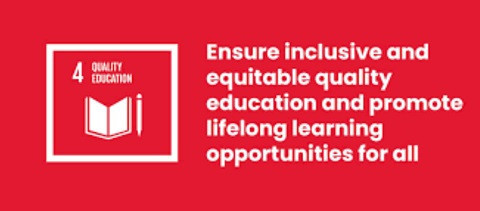
GCED Basic Search Form
Quick Search
현재 위치
뉴스

UNESCO has received endorsement of the Ministry of Education and development partners in Afghanistan to take the co-lead role of the Local Education Group (LEG) in Afghanistan, starting initially for a one-year term to December 2021 with a possibility of extension of a second one-year term after that. It joins UK’s Foreign, Commonwealth and Development Office (FDCO) in this role following the end of UNICEF’s tenure as the co-lead in June 2020.
Following this endorsement, UNESCO Kabul Office Director and Country Representative, Dr. Jordan Naidoo said, “UNESCO is honored to co-lead the Local Education Group and the Development Partners’ Group (DPG) with the FCDO, noting that these platforms represent the true spirit of partnership.” He affirmed, “UNESCO is committed to supporting the MoE and partners to improve the coordination of technical and financial support and to promote inclusive sector dialogue, enabling all partners to contribute to Afghanistan’s education policies and their implementation, with the aim to ensure equitable lifelong learning for all.”
A Local Education Group (LEG) aims to foster an inclusive and transparent dialogue on a country’s education policies, and support the relevant government in developing, implementing, monitoring and evaluating national education sector plans. While in Afghanistan the National Education Strategic Plan (NESP) Steering Committee serves as the LEG, the Development Partners’ Group is a complementary forum for synergized discussion among the development partners to improve coordination in resource mobilization, strengthen implementation, and strategize collaboration between the education stakeholders. The co-leads of the LEG are also the co-leads of the DPG.
The LEG and the DPG play a significant role in the development as well as the implementation of the NESP. Throughout the years, different development partners including UNICEF have fulfilled the role of co-leads of these mechanisms in harmonizing efforts to improve education services and outcomes in Afghanistan.
Ms. Erinna Dia, former head of education section in UNICEF Afghanistan Office believes that the DPG is a good platform for improving the coherence and quality of education policy dialogue and aid in alignment with the Sustainable Development Goals (SDGs) 4 and 5 and Afghanistan’s national priorities, ensuring adequate response to children needs, especially girls, in both development and humanitarian contexts. She also added that “the nomination of UNSECO as the co-lead is welcome as it will help ensure that all education sub-sectors, especially higher education and technical and vocational education and training (TVET), are properly accounted for.”
Based on UNESCO’s global expertise, and its role in leading coordination of the SDG4 targets globally, the UNESCO Kabul Office submitted an expression of interest as the co-lead in October 2020, and was confirmed unanimously. Following a robust process, UNESCO with endorsement from the leading development partners in the DPG and the Government of Afghanistan has become the official co-lead for the LEG.
Dr. Attaullah Wahidyar, Deputy Minister for Education at the MoE, highlights that “the thirst for indigenous quality education remained a historic priority in Afghanistan with its content, delivery and philosophy being continually debated and fiercely contested at all times.” He also believes that while delivery of equitable quality education with strongest public ownership remains a national priority, financing, harmonization, alignment and coordination with all stakeholders is also equally important if this national desire has to be materialized. Acknowledging the important role of the LEG, he added that “education sector needs a robust mechanism of coordination with all stakeholders, a job that the LEG is doing very well.” On UNESCO’s new role as the co-lead, he indicated “UNESCO, a long-term trusted partner of MoE, as co-lead of the LEG would provide technical lens to ongoing developing partnerships between MoE and its development partners. We are grateful to UNESCO’s continued engagement on key areas like curriculum, and sincerely look forward to their technical support in the strenuous initiation phase of the biggest reform agenda of MoE in decades that requires partnerships at all levels in order to be successful in making MoE a cost-effective, accountable, transparent and adequately funded enterprise.”
Mr. Antony Tam, head of education section in UNESCO Kabul Office, looks forward to the fruitful collaboration and coordination between development partners and MoE with UNESCO’s new role in the LEG and the DPG. “An immediate next step is to coordinate support and input from education stakeholders on the reform agenda of MoE and to review the existing mechanism with a view to strengthening coordination among education stakeholders to align with the reform agenda,” he added.
URL:
https://en.unesco.org/news/unesco-co-leads-afghanistans-education-sector-its-first-time
